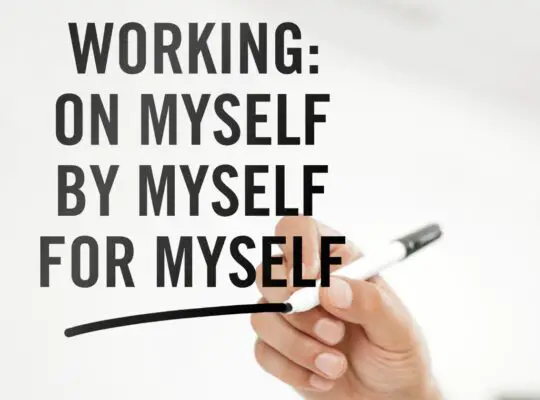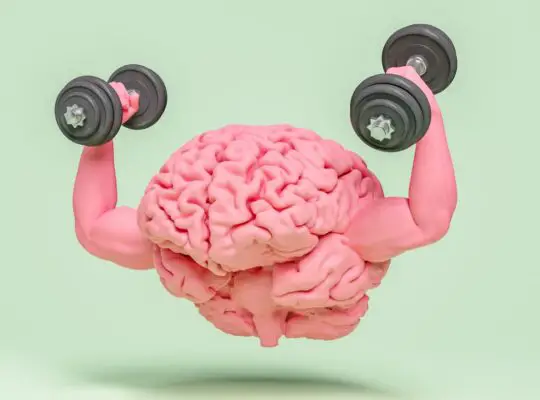What Is Motivation
According to Psychology Today, motivation is the literal desire to get things done. It’s the process that guides, initiates, and maintains our behaviors that are goal oriented. It causes us to act.
It involves the emotional, social, biological, and cognitive forces that stimulate behavior. In everyday situations, we use the word to describe the why of someone’s behavior.
What lies beneath our motivations?
Many psychologists have offered different theories, including instinct, humanistic, and drive theory. The truth is, there many forces that drive motivation.
For anyone that has had a goal it’s easy to understand that the desire to accomplish the goal is not enough. Achieving a goal requires persistence when met with obstacles, and endurance to keep pushing even in the face of difficulties.
There are three motivational components: persistence, intensity, and activation.
- Persistence – the continued effort to reach a goal despite the obstacles that exist. A good example of persistence would be taking additional courses to earn a degree, despite the fact that it will require a substantial investment of energy, resources, and time.
- Intensity – the vigor and concentration that’s put into pursuing a goal. Some students can coast without much effort, while others must regularly study, as well as taking every opportunity outside of class to research. The latter requires a level of intensity to pursue their goals, while the former has no need to put in any extra effort to succeed.
- Activation – this is the decision to initiate a particular behavior. For instance, the decision to actually enroll in in a course or to start that fitness regime.
So, what may actually motivate us into action? There is a variety of theories.
- Instincts – this theory suggests that our behavior is motivated by our instincts. An instinct is a fixed pattern of behavior. This may include any number of human drives, including biological instincts important to our survival.
- Arousal levels – this theory suggests people are motivated to indulge in behaviors that will allow them to sustain their optimal arousal level. Someone with low arousal needs may pursue activities that are relaxing, while those with high arousal needs are likely to be thrill seekers.
- Drives & Needs – many behaviors are driven by biology, this includes sleeping, eating, and drinking. We need those things biologically, so we are motivated to do them. This theory indicates that people have basic biological needs and are driven to fulfil them.
Varying types of motivation are described as being either intrinsic or extrinsic. Intrinsic motivations arise from within, and may include completed a complicated puzzle for the personal gratification that comes from solving a problem.
Extrinsic motivations arise from outside the individual; they include rewards such as money, praise, trophies, or social recognition.
How Motivation Shapes Your Life And Your Successes
What do you want from life?
Whether you’re chasing professional success, weight loss, muscle growth, more money, or learning how to play the guitar- your odds of success depend on how motivated you are to succeed.
You may be motivated to learn the guitar because you love the instrument, you may also be externally motivated by factors such as increased skills. Both intrinsic and extrinsic motivations are effective, but Harvard research has shown that intrinsic motivations may be more effective for long-term goals. This is particularly of interest for people who want to advance their career, or learn new skills.
Extrinsic motivations drive short-term goals.
A team of Yale psychologists turned to West Point to conduct vital research. Every year 1,300 students enter the military academy in New York, but only 1,000 graduate. Of those 1,000, a much smaller portion will pursue their career in the military beyond the mandatory service of 5 years. Even fewer are chosen for early promotion.
What motivation do these students have? West Point records this in an annual survey conducted on the incoming cadets as they also track career outcomes. Yale’s psychologists pursued this information for several years before finally gaining access to 14 years’ worth of data, covering 10,000 cadets.
The first task was breaking down the various types of motivation. West Point asks each cadet to describe their motivations using numerical scales and questions. The researchers developed a score for each student that would capture the internal to external motivation ratio. Some of the questions included their parents being the reason for attending, or their desire to be an officer. The former being an extrinsic motivator, and the latter being intrinsic. The variation in their career outcome was matched against the ratio.
As far as military officers go, the intrinsic motivation was everything. When factors such as religion, race, gender, scholastic scores, and socioeconomic background are taken into account, those cadets with intrinsic motivators were still 20% more likely to graduate than the average.
Per the National Academy of Sciences, for cadets with extrinsic motivation or even those that were equally driven by extrinsic and intrinsic motives they fared worse than average.
When compared to cadets with intrinsic motivators, those with mixed motives had a 20% lower chance of early promotion, and 10% lower chance of seeing out a military career.
While intrinsic motivation is powerful, it is fragile. Even if you find your work, meaningful or interesting, if extrinsic rewards are still a strong motivation for you then you may struggle to achieve your goals. People with equal motivators are less likely to finish what they started, or get promoted early. It creates a paradox for the ambitious.
The key to your motivations shaping your life and your success is by measuring the weight of those goals.
If achieving the goal has more benefits beyond the goal and you care about those benefits more than achieving the goal then you are more likely to fail.
Using our motivation to chase goals that we truly want for ourselves are the goals that we are the most likely to achieve. It is those intrinsic motivators that drive us to success.
Consider what it is that you would like to achieve and ask yourself why you want to achieve it. Understand your true motivation in order to allow it to shape your life.
Assessing Your Motivation Needs
What motivates you? More importantly, what is it that stops you from achieving your goals?
An intrinsic motivation is of personal interest and enjoyment to you. This is the most effective form of long-term motivation.
If your goals are long term, then you are more likely to succeed if you want to succeed is because you enjoy the process it will take to get you there.
Goals of mastery are generally intrinsically motivated. Goals of mastery promote motivation by encouraging task involvement, creating excitement, supporting determination, and by developing perceptions of challenge, while performance goals undermine intrinsic motivation, creating pressure and anxiety, disrupting task involvement, and instilling perceptions of threat.
Goals of mastery and performance approach foster intrinsic motivation because they are focused on attaining competence. In those situations, individuals view the achievement as a challenge, which creates excitement and encourages cognitive functions.
This increases concentration, as well as task absorption. It directs the individual to success and drives their mastery of the information.
There is a variety of goal constructs to consider:
- Task specific guidelines describe the performance of a particular action
- Situation specific orientations represent the purpose of the activity for achievement, such as demonstrating competence
- Personal goals symbolize your achievement pursuits, such as getting good grades, a promotion or anything else you want to achieve in life
- Self-standards include planning for any future successes or future goals
These theories are focused entirely on behavior, though there has been a shift to task avoidance.
Motivation is vital to our everyday lives, with our basic behaviors being affected by our inner drive to succeed. That motivation promotes feelings of self-worth and competence as we achieve those goals. Motivation gives us the means to compete, and to better ourselves in seeking out new information, and learning.
Everyone experiences his or her motivation differently, and it may be ego or task driven. Some people will strive to achieve those goals to meet their personal satisfaction, or self-improvement- such as health, weight loss, and job progression, while others simply want to be the best.
Your motivation and the behavior that results from it are affected by all of the different achievement motivation models. Although these models are separate, they are similar in both theory and nature.
Both the performance and mastery achievement settings have a considerable effect on how each of us is motivated. Understanding your motivational needs is vital to ensuring your own success.
When you have a goal, take time to understand what your motivation is to succeed. Understanding that, as well as what can prevent you from achieving it is vital to your success.
How To Become More Motivated
Seize The Day! Stop Wishing & Start Doing
Even under the best circumstances, it can be difficult to maintain our motivation levels. How do you stay motivated when everything is against you?
Remember, motivation isn’t magic. You can’t buy it in a store, or take a pill. It’s something that you must tap into and harness. You’ve probably read hundreds, even thousands, of tips from life coaches and inspirational authors. We can break it down to just seven, though.
Set Your Goal & Visualize
Visualize it to the most minute of details- allow yourself to see it and feel it, hear it. Elite athletes frequently visualize themselves on their course, picturing every bend, jump, and bead of sweat.
Create A List
Write out a list of every reason you have for wanting to accomplish any given goal. We live in a busy world, so it can be easy to get thrown off course. It’s vitally important that you are grounded in your goal. Ideally, you will write your list in pen so that you are fully committed to it. The process of writing the list by hand allows your brain to engage in the process, there’s more of a connection when you write it by hand.
Break It Down
Referred to as chunking, breaking your goals down into smaller sections and setting targets for each, as well as rewards if necessary are sure-fire ways to improve your chances of success.
Stress in our lives stems from being overwhelmed, from having too much to achieve leaving us feeling like it’s impossible. When approaching a project, you can’t do everything at once, as that will be overwhelming and impossible. Instead, break it down into small chunks that can be done one at a time. Each success triggers our brain’s reward center, and releases dopamine. This focuses our concentration and drives us to compete the next step.
You can apply this to any task, whether it is organizing your hall closet, doing the laundry, writing a research paper, or even your weight loss and health regime.
Strategy
It’s okay to change your strategy if it isn’t working. Never think of it as failure, instead consider it a discovery of the things that don’t work for you. Adapt your plan and necessary and continue your course.
Help
There is real value in sharing your plan with others. Consider all of the important paperwork you sign that requires a witness, namely a wedding license. You are announcing your intention to succeed and by sharing your plan with someone, you are being kept honest.
Sometimes out unconscious minds sabotage our best efforts or we overestimate our ability. By telling someone close to us about our drive, we are more driven to succeed, knowing that someone else is aware of our intentions.
Fading Motivation
No one wants to think about the prospect they may fail, however, in order to succeed you must consider how you will deal with fading motivation. It’s very likely that at some point we will face a setback, whether it’s a temporary issue or exhaustion- we all need a boost sometimes.
Be prepared to deal with that when it arises. Whatever it takes for you personally to get yourself back on track and avoid a pity party. Think of what other people may have endured in reaching their goals; really reach for any source of inspiration that will remind you to never give up.
Check Yourself
You made a list, so it’s important to reflect on it and make sure your reasons for carrying on still stand true. If you are seeking praise, then you must realize people’s opinions change with the weather.
You will face criticism and when you pull back and listen to your own voice the praise becomes less important. You find yourself being driven by those initial intrinsic motivations.
Seize the Day
You can draft the greatest plans, and put in all the necessary work to set yourself up for success… but if you don’t cap it off by doing it then you’ve wasted your time. You took the time to write the plan, understand your motivations, and you have given yourself the best chance for success. Now you must put it into action.
Think about your past successes and how you stayed on track to accomplish the goal. How did you feel when you achieved your desired outcome? Keep hold of that feeling as you chase every goal.
The Big Picture
Why are you here?
If you don’t do it, who will?
If you don’t do it now, when will you do it?
People sacrifice their health to make more money, and then people are forced to spend money for medical care when their health fails them. We frequently fail to live in the now, instead looking at what we missed out on, or what we could have.
If you’re struggling with exercise motivation, think about a time that you powered through your lack of motivation and did so anyway. Think about how great you felt afterwards, and how you felt during the workout, and how you felt about pushing yourself to pursue your goal.
Final Thoughts
Motivation, it’s the core of all of our actions. Our success or failure depends on our motivation, and understanding what motivates us can have long lasting positive effects on our lives and successes. It’s vital to understand what motivates us and act on it- doing so will result in a happier and healthier life.
Be passionate about your goals and allow that passion to light the fire that will keep you motivated and energized to succeed. Being passionate about your goals will help you persevere when you hit an obstacle.
If you feel your passion slipping, then remind yourself of why you’re chasing a goal, think of the positive outcomes that will come from achieving your goal.
If you’re driven by something other than passion, keep that end goal in your mind. Focus on what it would mean to reach that goal and all of the positive benefits it will have on your life.
Will it bring you financial stability? Will it make you healthier? Will you have more time with your family? Will you achieve the mastery of something?
We do things to reach the end goal, so keeping the end goal at the forefront of our mind is a good driver to keep us moving forward.
Whether you have already achieved success in your chosen goal or not, be proud of all the times you have reached goals. Feeling proud of yourself for previous successes can be a great motivator to see you through, especially when you hit a difficult day, or stressful week.
Whether you volunteered for a charity, or helping an elderly neighbor, remembering something that resulted in a positive outcome because of your contribution. However small your contribution, consider how it was a necessary step that enabled another role, each of which played a part in the greater good.
- Follow through with your persistence, invest your intensity, and activate those behaviors.
- Build your plan, factor in every possible obstacle and how you will overcome it.
- Then harness your motivation and passion and allow it to guide you to your greatest success, because we are all here to live our best life.
Our motivation is what will drive us to achieve that. It’s up to each of us to determine what that looks like for ourselves.







